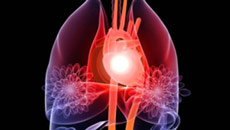If we believe US researchers, job loss is associated with a 73 percent increase in the probability of death - the equivalent of adding 10 years to a person's age.
However, this increased death risk affects only a minority of the people who are unemployed.
It is outweighed by health-promoting effects of an economic slowdown that affect the entire population such as a drop in traffic fatalities and reduced atmospheric pollution, they said.
Each percentage-point increase in the individual's state unemployment rate, researchers found, reduced the hazard of death by nearly nine percent - that is about the equivalent of making a person one year younger.
"Most people believe that being unemployed is a bad thing. But what many people do not realise is that economic expansions - which usually reduce joblessness - also have effects that are harmful for society at large," said Jose Tapia, an economist with Drexel University's college of arts and sciences.
Using data from the US Department of Labor and annual survey data of the years 1979-1997, researchers from Drexel University and University of Michigan in Ann Arbor created models in which the hazard or probability of death was statistically estimated.
"The results reveal that joblessness strongly and significantly raises the risk of death among those suffering it," researchers said.
The periods of higher unemployment rates such as recession are associated with a moderate but significant reduction in the risk of death among the entire population, they found.
The increase in the risk of death associated with individual joblessness may be related to stress and depression, Tapia said.
Atmospheric pollution - which strongly increases in economic upturns and diminishes in recession - may be one of several important mechanisms explaining why population mortality tends to decrease when the economy stagnates, he added in the study published in the American Journal of Epidemiology.





